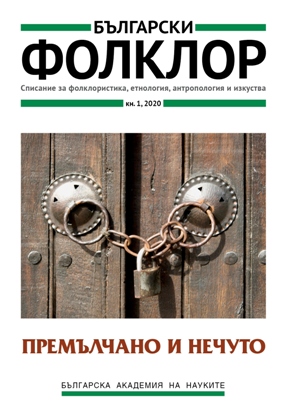Езиково табу и детабуизация на медийната реч (Номинации за обозначаване на половата принадлежност и на семейните и сексуални отношения)
Linguistic Taboo and De-tabooing in Media Discourse (Nominations for Denoting Gender, Family and Sexual Relations)
Author(s): Andreana EftimovaSubject(s): Anthropology, Language studies, Gender Studies, Cultural history, Semiotics / Semiology, Media studies, Gender history, Lexis, Semantics, Pragmatics, Sociolinguistics, Cultural Anthropology / Ethnology, Culture and social structure , Social development, Sociology of Culture, Philology, Social Norms / Social Control, Phraseology, Stylistics
Published by: Институт за етнология и фолклористика с Етнографски музей при БАН
Keywords: taboo; media speech; sexual and gender affiliation; sexual relationships; body parts
Summary/Abstract: The article draws attention to the linguistic aspects of the problem of speaking in the field of gender and sexual relations. My observations show numerous examples of euphemistic names for marital status, sexual relations and intimate body parts. The presence of euphemisms in the tabloid media and their active use there refute the perception in linguistics (and in particular in stylistics) that euphemisms are a feature of a single type of socially restricted speech (i.e. that they are part of official / high registers). My observations clearly show that in the media environment in Bulgaria there is a clear tendency for the active use of euphemisms within the informal speech register. This tendency is defined as brand new, formed at the end of the 20th century and actively manifested at the beginning the 21st century in journalistic style. Dysphemistic nominations are mostly jargon words and contradictory evaluations include nominations belonging to the group of international terms – impotent, vagina, penis. The transformation of medical terminology into dysphemisms and taboo names is due to the fact that the denoted concepts are strongly prohibited. This is further transmitted to the very terms denoting them.
Journal: Български фолклор
- Issue Year: XLVI/2020
- Issue No: 1
- Page Range: 059-077
- Page Count: 19
- Language: Bulgarian
- Content File-PDF

